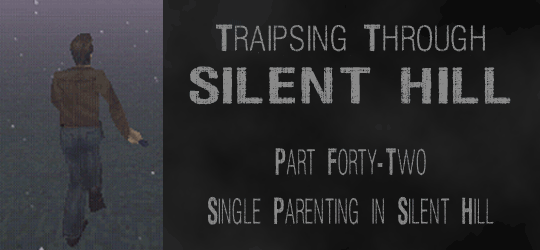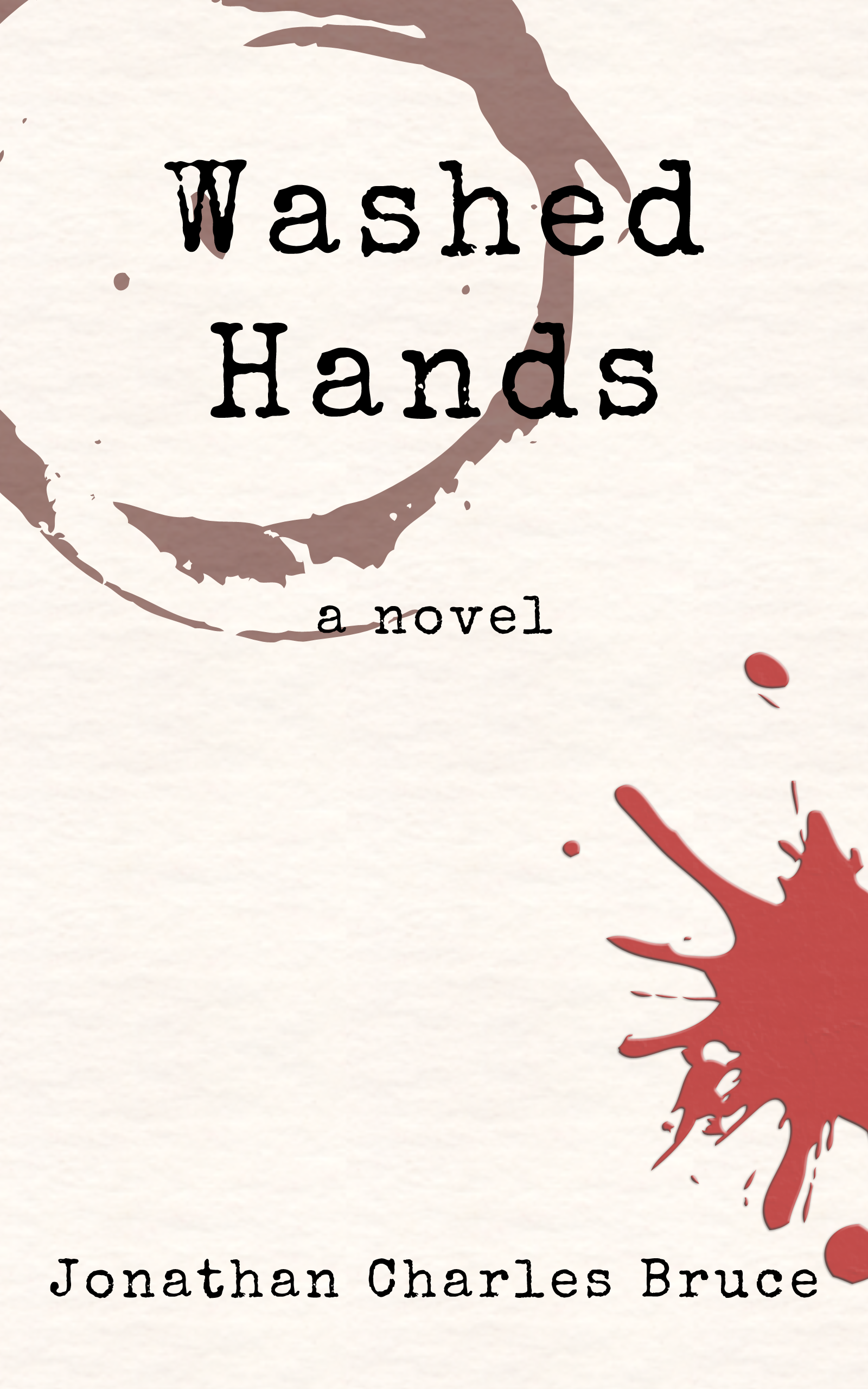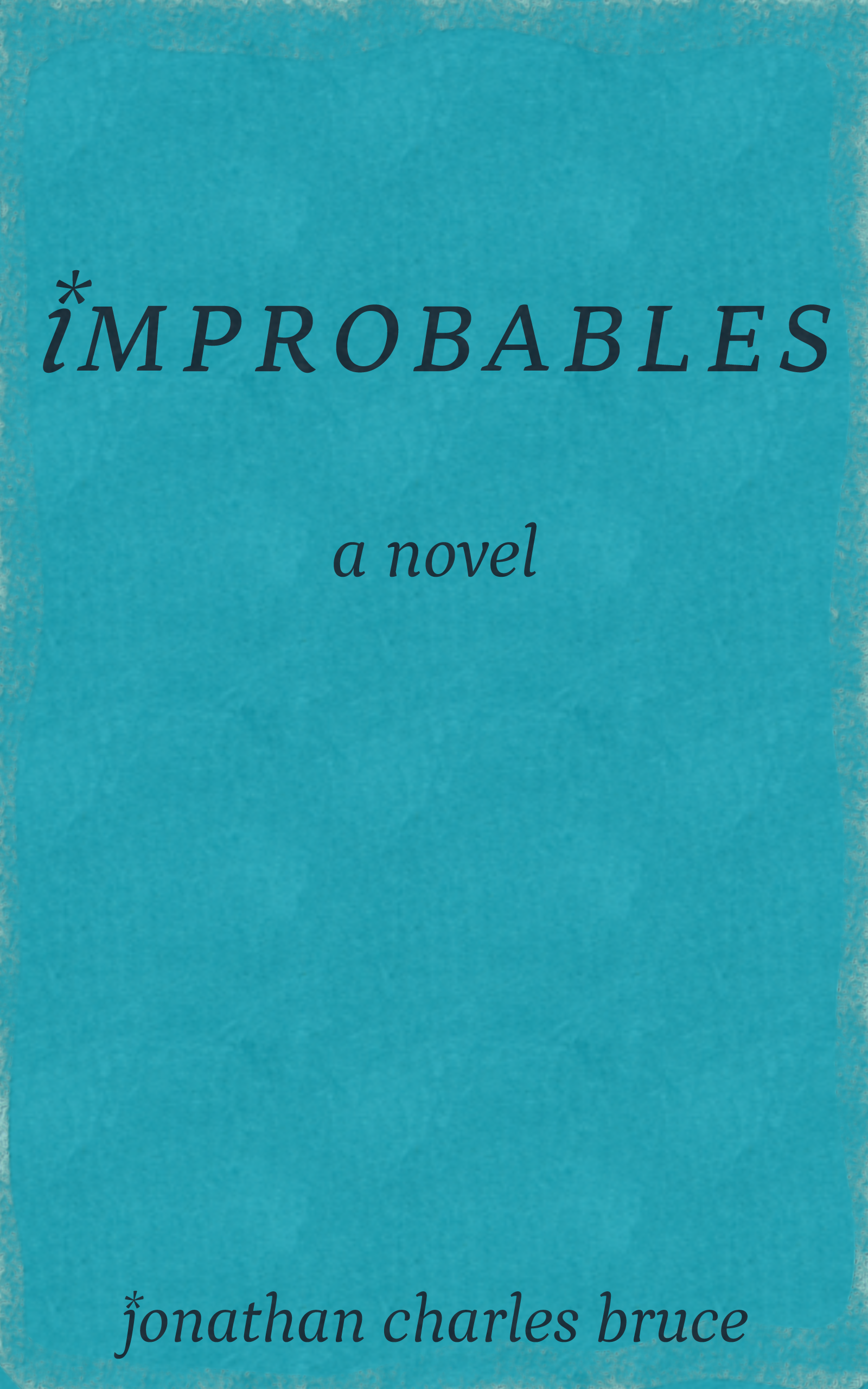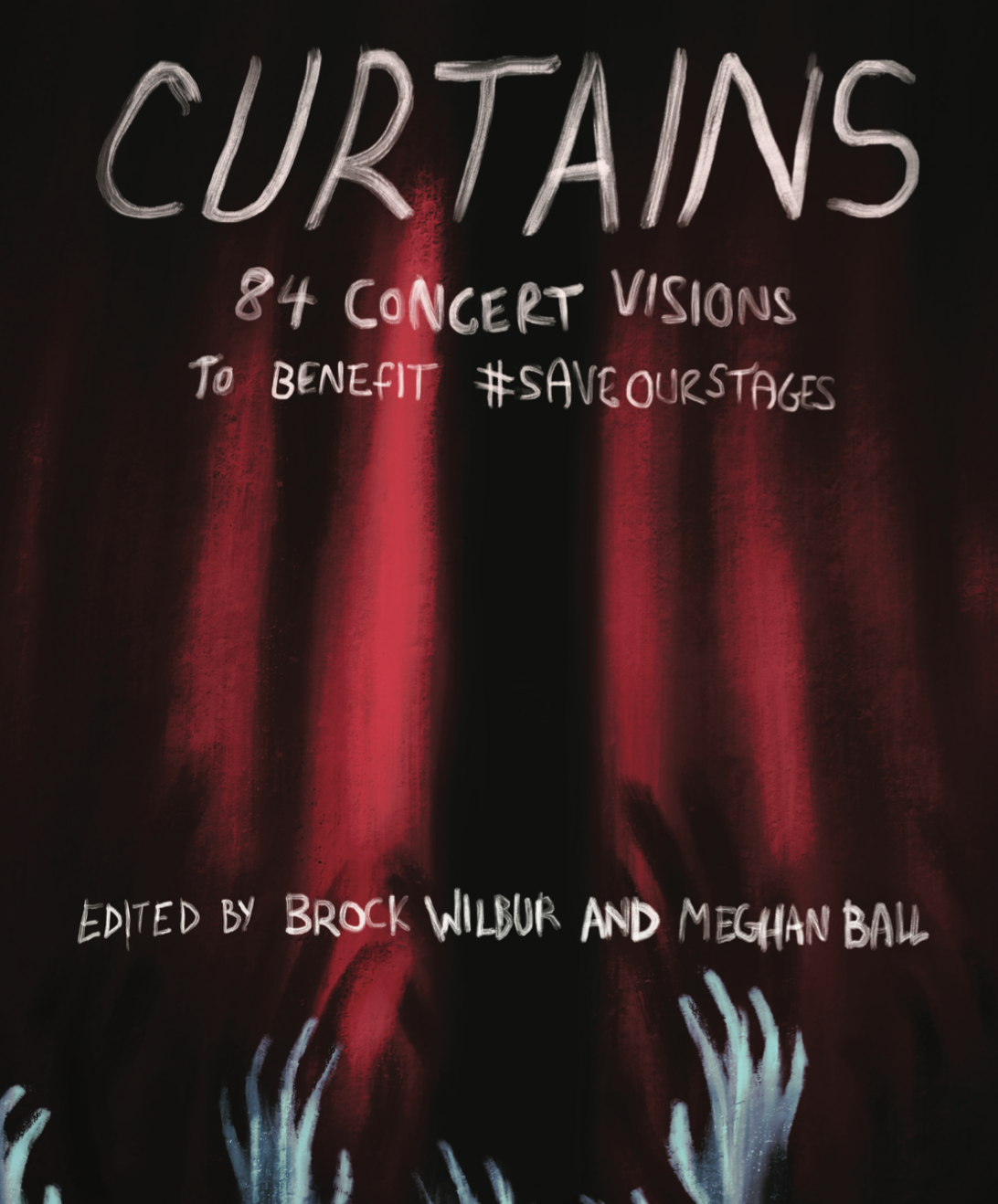Welcome back to the final update of Traipsing Through Silent Hill! I remain your loyal and effervescent host, Jonathan Charles Bruce, and you remain you—my lovely and awe-inspiring Traipsers of high-repute! Last time, we took a grand tour of the unlockable items and options the players earns upon beating the game in various ways. We also spent some time going over the other endings, none of which were particularly as worthwhile as the one we originally earned, but whatever.
For the last update, I’d like to just start with my general impressions of the game itself. I don’t think that it will come as too much of a shock to learn that I was very unhappy with the narrative. That was certainly not the plan, I assure you. Believe it or not, I had gone into this entry of the series hoping that it was going to be a nice little jaunt down Nostalgia Lane. As we got further into it, however, it became really apparent that the gulf between my past experience and present reality was much, much bigger than anticipated. I ended the game exhausted and with a spectacular hatred for Harry Mason.
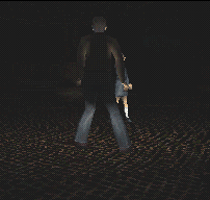
The best part of this or any game.
While part of this can be blamed on the nature of late 90’s video game storytelling, I don’t find that excuse particularly worthwhile. After all, System Shock 2 came out the same year and does a much better job with its narrative. Even 1998’s Metal Gear Solid, while a bit long-winded, did a comparably masterful job of having a sprawling story without any one element suffering too much because of it. Focusing on “it’s just a video game” handwaves away a problem instead of actually answering the far more important question of “why” something didn’t work.
I think that if we’re going to blame anything, it should be the fact that it’s just really obvious that it was never really clear what the designers were trying to do with the game. Are we dealing with the disappearance of a town’s population? A drug ring? A missing daughter? A mysterious ghost girl? Multiple dimensions?
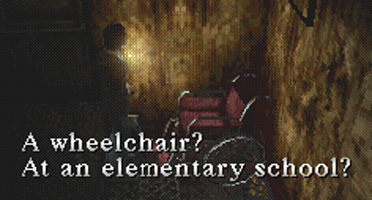
Figuring out where wheelchairs come from?
While a lot of the threads of the narrative get a little bit of time, the only one that really, truly mattered was the story of Alessa. This should be obvious considering the comparable amount of time and detail Alessa gets, even if it is ham-handedly shoved into the last fifteen minutes or so. Every other plot thread is just a red herring at best or pointless at worst. Unlike Metal Gear Solid, which had a big story to tell, Silent Hill struggles to tell a simplistic narrative while trying desperately to maintain the illusion of a larger story. This results in the narrative, overall, being a big ol’ mess that undermines itself at every opportunity.
To elaborate on what I mean by this, let’s take a look at one of the first big “mysteries” of the game—the missing townspeople. Now, I did briefly touch on this back in update eleven, but here’s a slightly longer version: demon birds and dogs running around otherwise empty streets, crashed vehicles, Cybil saying that Brahms lost contact with Silent Hill, trashed stores, destroyed roads, blood stains pretty much everywhere… it looks like some kind of Apocalyptic event rolled through the town and took everyone with it. That alone is a story worth telling—and the game fools you into thinking you’re doing just that.
But you’re not.
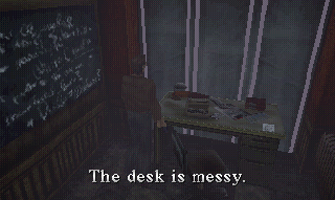
Instead, it's just an excuse to run around and judge people's organizational skills.
You see, the reason why you don’t bump into anyone not relevant to Alessa’s story is because a good portion of the town’s 956 people is just fine and not in the foggy version of Silent Hill. What do I mean by that? Well, thanks to Origins and Silent Hill, we can extrapolate that there are three versions of Silent Hill—“normal”, “foggy”, and “nightmare”. And how can I make such an audacious claim with the evidence we have?
Well, think about it. If Travis’s adventure didn’t immediately kill all tourism thanks to a mass disappearance/serial killing that would go forever unexplained, that pretty much suggests that most people had no idea that the events of the game even happened. They would have been completely unaware of Travis and Alessa fighting monsters in the streets. This means that Travis had to have been operating in some kind of midway point between the normal and nightmare world—a place that copies the physicality of the location of Silent Hill, but not the population.
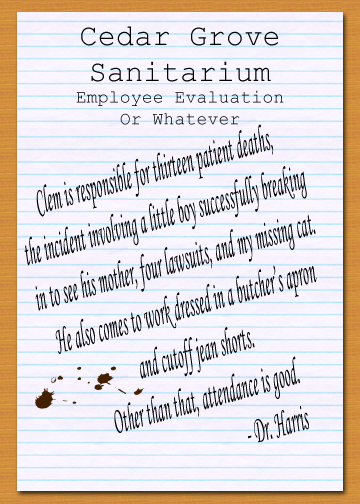
Well, I'm sure Clem contributed something to the nightmare.
Jump forward seven years. A Silent Hill “event” happens again, this time happening to Dahlia, Kaufmann, Cybil, Harry, and Lisa at the behest of Alessa. We never actually encounter another living soul in our journey here, so it’s logical to assume that these are the only people pulled into the nightmare, meaning that there is no mass disappearance to speak of. This leads us to believe that the town being “abandoned” is in fact a non-issue, a red herring designed to distract the player from what’s really going on.
But, if it is a non-issue, then why is Cybil even here? Remember, she claims that she was called in to investigate the fact that Brahms lost contact with the Silent Hill police department. But that little issue is never resolved. The answer is, quite literally, contrivance. They probably intended that the townsfolk all vanished, but since it’s not maintained in or even important to the story being told, it’s abandoned for the sake of convenience. Sure, you could always pull the “Alessa/the town called to her!” card, but where is your evidence? There isn’t any. So it loops back to “convenience”.
Further, the presence of sequels and prequel undermines all other interpretations. About 1,000 people vanishing from Silent Hill is not something you can just fucking write off, people—someone’s going to notice and a lot of people are going to rightly freak the hell out. Who repopulated the town after Travis’s jaunt about town? Who would? Why on earth would Harry take his young daughter to a resort community that swallowed its inhabitants?
This little bit of narrative minutiae not only blows a sizable hole in the game’s plot, but also its tone. Think about all the corpses we encounter throughout the game—and there are a lot of fucking corpses.
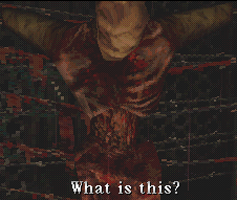
Like this one! Scared yet?
Who are they? The townspeople? Cultists? Harry almost never comments on them in any capacity, so there’s no way to get more information other than “dead”. If they’re townspeople, why? What did they do to deserve being punished? If they’re cultists, why did they get instantly deep-fried and crucified while Skeeves, Dahlia, and Lisa get to run about like it’s no big deal?
And then there’s that little throwaway line that was just so goddamn important that they slapped it on the ending if and only if you save Cybil.
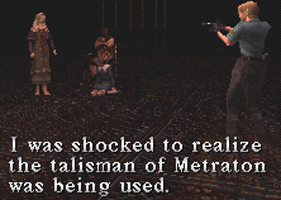
Sorry, there was a second game going on without you. We had pizza and booze. We tried to find you, really.
That single line implies that there are other cult members doing things to try and stop Dahlia. Either that, or it’s Skeeves. Either that, OR WE DON’T FUCKING KNOW BECAUSE THE PLOT WASN’T THOUGHT OUT. If there were additional cult members running about, where are they? Why didn’t they get murdered? And once again, what makes them and the other characters present in the narrative so damn special, while random people get murdered and pinned to the walls?
And don’t anyone try to claim that Dahlia is somehow super-protected or something—she sics Harry on Alessa precisely because she can’t get close to her daughter. At least, that’s the impression we’re left with.
My working theory on this topic is that they’re not people—they’re props. They’re literally just vaguely human looking set pieces, designed to look scary while not having any analog in the real world. I maintain that if the number of corpses we come across throughout the game were actually people, that would be enough to keep anyone—like say, James and his wife from Silent Hill 2—far away from this weird place. Further, that means that the blood we find all over town in the form of bad poetry and puddles doesn’t come from anyone at all—it’s just Spooky Ink™ generated by Alessa for the sake of leaving plot-destroying clues for Harry.
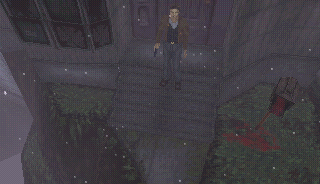
Or, in this case, blood in the mailbox 'just because'.
If this is indeed the case (and you’ll be hard-pressed to convince me otherwise), then all the “horror” of the blood and corpses mean precisely nothing. They just exist because it’s a “horror” scenario and, to the lazy/naïve, blood and corpses automatically equate to terror. But here’s the thing—devoid of context, they’re just things. I know this sounds horrible, but a dehumanized corpse is just a body. Not knowing where blood comes from devalues the scare associated with it.
Don’t believe me? Fine—take a look at the scene in Carrie where the bullies dump pig’s blood on the protagonist-whose-name-escapes-me. In the film, there is an extended sequence where the kids kill a fucking pig to get the blood. It’s gross and uncomfortable and horrifying, especially because one of the bullies is laughing like a maniac as it happens. She’s so into the killing that it the audience subconsciously understands that it’s not too far of a stretch to putting Carrie (or any unlucky person) in the pig’s place. And when Carrie is doused with the blood, it’s all the scarier because of the horrible act associated with it.
Now imagine they had just gone to the butcher’s and bought a packet of pig’s blood. Gross? Certainly. Scary? Eh. Because the corpses and the blood of Silent Hill are so dehumanized, so removed from anything or anyone we know or could possibly care about, they become merely gross and not scary. It’s an unpleasant truth, but it’s there. It’s why detective shows will spend time finding out about the dead-person-of-the-week; by humanizing the victim, the crime becomes personal and horrific to the viewer. Without it, it’s just violence for the sake of violence.
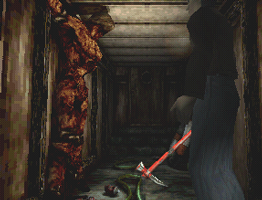
Who the hell is this supposed to be? The boat owner? Why? Why should I care?
Anyway, I guess the larger thrust of this line of thinking is that a lot of the major points of the narrative just kind of fall apart if you think longer than a moment about them. For instance, the whole Alessa’s death conspiracy orchestrated by Dr. Skeeves and Dahlia is just ludicrous. Why was that even an issue? You could have just had her in a coma in a regular hospital room rather than a dank basement. Would that have realistically changed anything? Of course not.
As long as Dahlia paid/Dr. K waived the fee, Alessa would be taken care of and there’d be no one to question why she was there. Sure, some people may have asked questions, but it’s not like it would have generated much attention provided Dr. Skeeves did his fucking job and suppressed any attempt for media attention. Even if someone did a substantial investigation, Dr. K and Dahlia clearly have a comical amount of influence in the town—they’d either kill the person responsible or stymie the investigation. They apparently do it all the time.
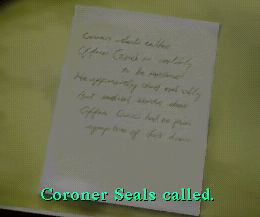
Pictured: A Tuesday.
The only reason these events shook out that way was to be more “mysterious” and “evil”, both of which are synonyms here for “completely and asininely stupid” and “actively working against their endgame”. By making it a conspiracy, they put themselves in a situation where people like Lisa will break down rather than cycling people in and out of caring for Alessa, reducing the overall psychological strain on the staff. It’s all so childishly cruel.
Now, this isn’t to say that Silent Hill doesn’t have its great moments. The Good+ ending in particular is an excellent example of an incredibly well-done sequence that tugs at the player’s emotions in an effective way. It’s just a shame that it’s totally unearned. When Harry spends most of the game being a confused idiot only to have this scene be effective at its emotional appeal, the end result is not nearly as rewarding as it could have been.

It's hard to take this seriously when the game has convinced me that all Harry's thinking is, 'Duhhhhhhhh.'
And speaking of Harry, he, as a character, is simply terrible. He’s an underdeveloped shmuck who wanders around not knowing what the hell is going on, yet willing to loudly tell anyone who will listen a half-cocked story that may or may not have any resemblance to things he could possibly know about the situation. It was clear that the writers of the game wanted to make a mystery, and in order to really drive home how mysterious everything was, they had the character just wander around shouting how confused he was by everything instead of, oh, I don’t know, developing a well-crafted mystery. It didn’t work as anything other than making Harry look like a complete dope.
As I mentioned in previous updates, the worst part about all of this is that if you were to take Harry out of the game, everything would resolve itself. Alessa winning is not the end of the world scenario Dahlia wants Harry to believe—at least, that’s the implication. If Harry’s the only one who can stop Alessa, then, well, just having Harry excised from the plot actually wins the game, doesn’t it? Alessa stops the birth of the god, Dahlia and her cronies die, and what’s the problem?
The problem was that it appeared that we started with a story that didn’t actually involve Harry in the slightest. It should be fairly obvious by now that the real, demonstrable impact Harry has on the plotline is minimal at best and outright useless at worst—he could be replaced by a random tax collector and it would play out roughly the same way. As such, would it be too hard to believe that a story about Alessa was built up, incorporating Dr. K, Dahlia, Lisa, and Cybil, and then Harry and Cheryl were just kind of thrown in as an afterthought? Like, someone realized that they didn’t have a protagonist and were all like “Oh, right, well, let’s make it so that Alessa has half a soul being taken care of by her adopted father. Done!” Instead of using one of the characters they already had, they gave us bland brunet guy even though there’s no room in the story for him.
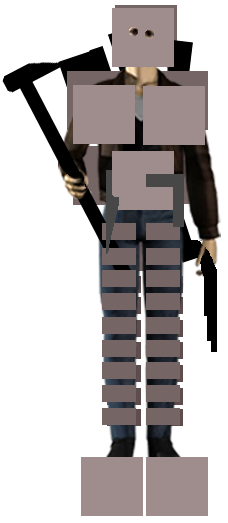
How can there not be room in the story for this magnificent man?
I can think of one reason why Harry’s here… I suppose if I were feeling intensely mean-spirited, I would suggest that Harry and Dahlia’s personalities actually work if we are to take this game as an allegory condemning single mothers. Keep in mind that I don’t necessarily believe this to be the case, and even if I did I would find the message incredibly offensive, but both Dahlia and Harry are single parents that, while perhaps semi-unique, still exhibit some popular stereotypes of these types of characters.
Dahlia, the mother, is completely and dangerously unhinged, willing to use her child for her own selfish gain. On top of that, she is manipulative and ends up destroying the men she tricks into helping her—both Dr. K and Harry are duped into her plans, both are betrayed, and both suffer for it. Harry, the father, is a bumbling-but-well-meaning idiot who does his best at the stereotypically masculine quest of rescuing the damsel. In practice, neither character is sympathetic, but it is Dahlia who is terrifically evil and earns the audience’s ire by using her daughter as a part of some larger though vaguely defined plan—either “power” or to birth an “illegitimate” god that promptly kills grandmother in karmic backlash.
Long story short, it doesn’t take a whole lot of work to turn this into a very dark narrative of single parents. Harry is a likable dink (at least this is what I’m assuming they’re going for) who tries his hardest to love and protect his adopted daughter, but is ultimately powerless in the face of “nature”. Dahlia is a scheming monster who views her child as a resource to be exploited, much the same way that certain people view single mothers as using their children to mooch off of the government. Just because there’s a kooky cult involved doesn’t make the stereotype any less obvious or insidious.
As a side note, if you ever wanted to know where the incredibly odious term “welfare queen” came from, you’d do well to read this article—if anything, Linda Taylor is more cartoonishly evil than Dahlia.
Regardless of that, though, I think the major underlying point is that we have a handful of other potential protagonists that are infinitely more interesting and useful—hell, one of them even has a direct impact on the plot! So, to finish off this journey into Silent Hill, let’s take a look at the other games that this series could have started off with. Not that we couldn’t, you know, reboot the franchise with some of these ideas. Just… you know… throwing this out there.
Betrayed
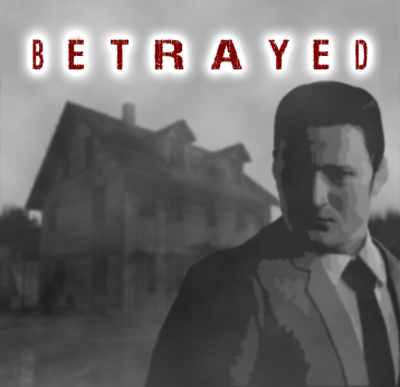
Skeeves's image from the Silent Hill Wiki
Far More Interesting Protagonist: Dr. Michael “Skeeves” Kaufmann
Genre: Adventure-Horror
Synopsis: Waking alone in his hospital, Dr. Michael Kaufmann realizes that he has been trapped in Alessa’s nightmare. The only way to save himself is to recover Algopolgo (Aglaophotis, whatever) and use it to forcibly separate Alessa and the god residing within her. As he journeys through Silent Hill, it becomes apparent that Dahlia has betrayed him and is destroying all of his chances to stop her plan. Not only that, but Alessa isn’t exactly thrilled with the doctor’s continued existence.
And then, of course, there’s his own shady past… a past that the town itself is all too keen on dredging up.
Why It Would Work: Dr. Michael “Skeeves” Kaufmann is a terrible human being. But he’s also a terrible human being with legitimate darkness to explore that would make his journey through Silent Hill particularly brutal. By making the game about him and his attempt to do the right thing (save the world!) for the wrong reasons (self-preservation!), the narrative transitions from bland hero doing the hero thing to unlikable fuckwit becoming an unlikable savior. But don’t think of this as a redemption narrative—the only “happy” ending involves Skeeves succeeding, but still horribly punished for his crimes.
This would also work to showcase the town itself as an organism, something every other game in the series does but this one only kind of sort of hints at. This would be accomplished by having Lisa be an integral part of the narrative. Watching how Kaufmann interacts with her as she slowly loses her grip on reality and becomes a part of the nightmare would be a constant, chilling reminder that you’re not playing a hero, but someone just as monstrous as the things he fights.
Spiral
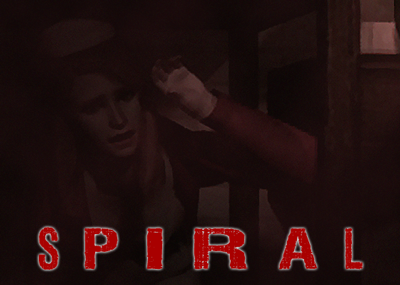
Far More Interesting Protagonist: Lisa Garland
Genre: Stealth Horror
Synopsis: Lisa Garland is tired and trapped in a life she never really wanted. After a particularly grueling shift, she finds herself trapped inside a seemingly empty hospital that transitions at will between the ultra-modern Alchemilla that she knows, a long-abandoned mental institution, and a hellish nightmare reality that is populated by creatures that shouldn’t exist. Struggling to understand what’s going on, the only thing she knows for sure is that a girl she’s grown attached to—Alessa Gillespie—is somewhere in the three realities and needs Lisa to find her before it’s too late.
Of course, not everything is as it seems. The truth is somewhere within the twisting halls… but is it a truth Lisa wants to know?
Why It Would Work: First of all, Lisa is not an interesting character so much as a squandered character. This would fix it by giving her actual screen time to develop her story more than Silent Hill or Origins ever did.
More importantly, however, it would actually be true to the horror genre that the games aspire to by making Lisa have to use stealth and distraction to survive. Her ability to directly threaten antagonists is minimal at best—instead, she has to hide and avoid the attentions of the beasts of the darkness.
On top of that, we’d actually get into the headspace of Lisa, a woman dependent on narcotics to get through the day and in charge of taking care of someone who is defying medical science. The story would deconstruct the lies we tell ourselves to sleep at night, only to rise and do it all again the next day. It would also be an intriguing foray into the idea of guilt and responsibility—Lisa would probably build a world where Alessa is getting better, where Alessa is grateful to be taken care of. But as layers peel away and Lisa is left with the stark reality that this girl is in agony and probably very rightly despises Lisa for her complicity in her torment, how will she be able handle it?
I guess what I really like about this idea is that it challenges the notion of “Just following orders” by making the player equally responsible for Alessa’s torture. There could be several moments in the game where you basically have to follow Dr. K’s orders to “survive”, while in reality it is Lisa contributing to Alessa’s situation. In the finale, having Lisa try to justify her actions—others would take my place!; Dr. Kaufmann would kill me!; Alessa is my friend!—would be harrowing.
Missing Persons
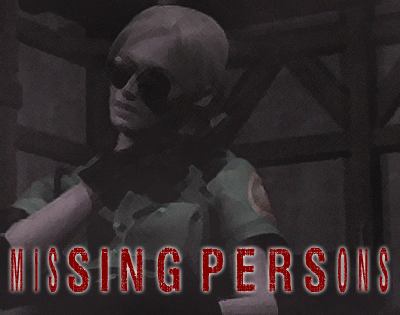
Far More Interesting Protagonist: Cybil Bennett
Genre: Adventure/Mystery-Horror
Synopsis: Called in to help Silent Hill P.D.’s pending breakthrough on a drug trafficking ring, Officer Cybil Bennett arrives in town to discover that everyone is missing. In what looks to be the wake of a town-wide riot, Cybil discovers that whatever happened to the population goes beyond a drug ring and may, in fact, tie to a case she worked seven years ago.
The worst part is that someone or something in Silent Hill knows Cybil’s secret… and it’s hell-bent on killing her for it.
Why It Would Work: Outside of Cybil’s supernatural powers and general stupidity, she really is in a better place to be our protagonist than Harry ever was. A badass motorcycle cop with weapons training seems like a person I want on my side in a fight. Of course, I’d actually make it so that the emphasis was on puzzle solving and fighting only as a last resort/puzzle-boss. But that’s beside the point.
What I think would really be cool about this is that we could tie Cybil to an earlier investigation of the Gillespie fire. Make it so that she worked in the Silent Hill P.D. until that case. She was convinced that Alessa was still alive, but after being discouraged by her chief and incompetent coworkers, she resigns. Pulled back into the first investigation, she makes this journey into Silent Hill about redemption—she feels that she can save Alessa this time and make things right.
Naturally, things don’t really shake out that positively, but it would be a neat story to tell.
It would also serve to semi-justify the conspiracy aspect of Dahlia’s plan. Now, it’s still stupid, but by making Cybil put pressure on the cult while Travis was simultaneously fucking up their plan, it actually makes it a situation where a conspiracy seems like a good idea.
Psychic Murder Ghost
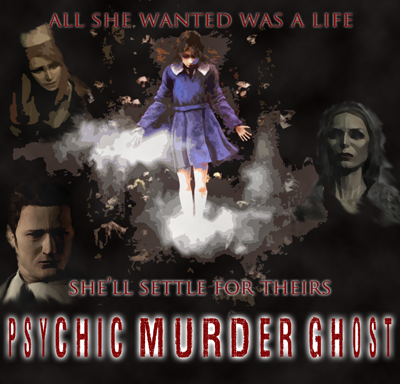
Most Images from the Silent Hill wiki
Alessa being awesome from Silent Hill Memories
Far More Interesting Protagonist: Alessa Gillespie
Genre: Adventure-Horror
Synopsis: Awakened in what appears to be an old antique store, Alessa Gillespie soon finds herself in the empty Silent Hill. As she tries to find someone who can help her, she begins unravelling the mystery of how she got there and the horror sleeping within her—but also the people who put her in that situation. Torn between revenge and saving the world, Alessa must also stay one step ahead of a mysterious man following her every step.
All she wanted was a life. She’ll settle for theirs.
Why It Would Work: I’m sure no one wants to hear me talk again on why Alessa needs her own game. But tough shit—Alessa needs her own game, considering we’ve been playing her story for two installments. She’s the most interesting and well-developed character of the metanarrative thus far, and it’s more than a little bullshitty that we never once get to spend any time in her shoes.
The being said, I think that it would be really awesome to have this kind of game, particularly because the narrative drives an interesting “moral” mechanic. Instead of just choosing between “goody two-shoes” and “hilariously evil”, neither option really is particularly good for Alessa’s well-being. That is to say, there’s a high likelihood of dying either way. It actually encourages the player to determine who lives and who dies on their merits—like Lisa? Don’t kill her. Want to set a writhing mass of hungry tentacles on Dr. K? Go nuts.
But by telling the story from Alessa’s perspective, we also give some merit to Harry. Since we’re not trapped in his frankly stupid body anymore, his relentless pursuit of Alessa becomes much more ominous. We’re given the opportunity to see the so-called protagonist from Silent Hill in a way that actually frames his actions appropriately—as that of an antagonist. And if you wanted to, he could be designed as the “relentless pursuer” kind of monster—like the Butcher or Executioner—until it is revealed that he’s just a regular joe trying to save his daughter.
Further, since Harry is Cheryl’s adopted daughter and Alessa would eventually know this, do we as the player kill him to make our lives easier? Or do we let him continue after us, nipping at our heels as we struggle to contain the horror that is eating us from the inside out? How’s that for a moral dilemma?
* * *
So, that’s it for now, Traipsers! I am taking a bit of a break to recharge my batteries after this. After all, I have a class to develop, books to write, and other things to do. Also, between this an Origins, I basically wrote two books worth of content (over 170,000 words!). And while it was worth it to grow closer to y’all, it’s also a lot of work. It took about three to four hours’ worth of time to get a single update up and running—this includes writing, editing photos, creating gifs, proof-reading, and then various website chicanery.
I’m looking forward to our next foray into Silent Hill, whenever that might be. But until then, I remain your Jonathan Charles Bruce, and you shall have a great day!
BONUS: Something that never disappoints in this game series is the music. I stumbled on this today, and I think it's pretty awesome. I hope you enjoy it!
< PREVIOUS ENTRY • NEXT ENTRY >
Advice • Fiction • Gaming • General Musings • Reviews

